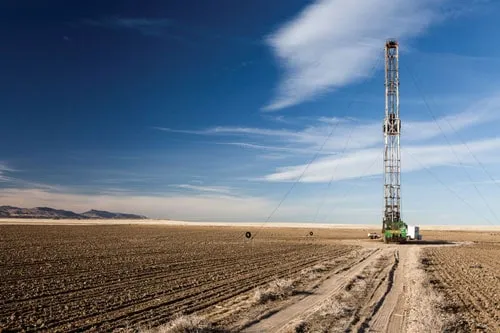Government & COVID-19: Weld County projects steep oil revenue declines in 2022

About this series: BizWest is investigating the effect of the COVID-19 pandemic and resulting economic stress on municipal, county and state governments, including furloughs, layoffs and budgetary deficits. Articles will be published daily on various jurisdictions.
WELD COUNTY— The coronavirus is constricting the economy and oil producers now, but Weld County finance officials are bracing for a serious shortfall in oil-related revenue in 2022.
SPONSORED CONTENT
County finance director Don Warden said Weld County isn’t looking at any near-term cuts to employees or services because of the current coronavirus situation. It also has $60 million in a contingency fund that it can tap to offset lost revenues.
Weld County doesn’t have a sales tax, so it isn’t as immediately affected by the sudden and steep drop of commerce that cities and other counties are experiencing. Over half of the county’s revenue in 2020 came from property taxes, with 64% of that coming from property taxes on lands used for oil production.
Those oil taxes are assessed on a two-year lag, so Weld County should have stable revenue figures coming in for 2020 and 2021 because of stable industry growth in 2018 and 2019.
But in 2022, Warden expects more than a 50% drop in tax revenue from oil producers due to the highly volatile several weeks in the energy markets caused by outsized production and depressed global demand for fuel.
In a matter of hours Monday, prices for West Texas Intermediate dropped from about $20 per barrel to minus $38.45 as traders attempted to offload futures contracts before having to take delivery of the physical oil. It was the first time the commodity ever went negative and made oil effectively worthless in that short period.
While a one-time or short-term drop into negative rates may not have immediate impact on the taxes collected in 2022, it signals a long period of low prices that are certain to force overly indebted producers into bankruptcies and mergers.
“What are the full ramifications down the road if it’s short term for a month, or six weeks, or even a couple months?” he said. “It’ll be difficult, but it may not be as drastic as if it goes on for a year or so.”
Warden said bankruptcy courts tend to treat municipal taxes with more priority than other creditors, and in the worst case scenario, the county could seize wells or other assets. But additional time and litigation cost could reduce the overall revenue the county can pull from a producer.
Weld County also taxes residential properties at only 14 mills instead of the 22 mills it is allowed to by statute through a temporary tax credit. Warden said that could be rescinded to increase revenues if there is a long-term downturn in expected oil revenues.
© 2020 BizWest Media LLC
About this series: BizWest is investigating the effect of the COVID-19 pandemic and resulting economic stress on municipal, county and state governments, including furloughs, layoffs and budgetary deficits. Articles will be published daily on various jurisdictions.
WELD COUNTY— The coronavirus is constricting the economy and oil producers now, but Weld County finance officials are bracing for a serious shortfall in oil-related revenue in 2022.
County finance director Don Warden said Weld County isn’t looking at any near-term cuts to employees or services because of the current coronavirus situation. It also has $60 million in a contingency…





